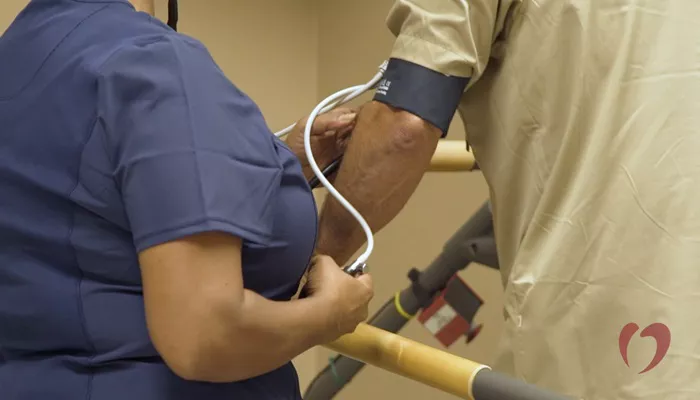Blood pressure and heart rate are vital signs that reflect the health of our cardiovascular system. Blood pressure measures the force of blood against the walls of our arteries, while heart rate indicates how many times the heart beats per minute.
Both are essential for ensuring that oxygen and nutrients are delivered to tissues throughout the body. However, several factors can lead to increases in blood pressure and heart rate, which can pose serious health risks if left unmanaged.
Understanding these factors is crucial for maintaining cardiovascular health and preventing conditions like hypertension and heart disease. In this article, we will explore the primary factors that contribute to elevated blood pressure and heart rate. These factors can be categorized into lifestyle choices, physiological responses, environmental influences, and medical conditions. By recognizing these elements, individuals can make informed decisions to protect their heart health.
Lifestyle Choices
1. Diet
One of the most significant lifestyle factors affecting blood pressure and heart rate is diet. A diet high in salt, saturated fats, and cholesterol can lead to hypertension. Sodium causes the body to retain water, which increases blood volume and, consequently, blood pressure. Foods high in saturated fats can lead to the buildup of plaque in arteries, making them narrower and increasing resistance to blood flow.
Key Dietary Components:
Salt (Sodium): Reducing sodium intake can help lower blood pressure.
Saturated and Trans Fats: Minimizing these fats can improve heart health.
Sugar: High sugar consumption can lead to obesity, a risk factor for hypertension.
2. Physical Inactivity
A sedentary lifestyle is a significant contributor to elevated heart rate and blood pressure. Regular physical activity strengthens the heart, improves circulation, and helps maintain a healthy weight. When individuals do not engage in regular exercise, their hearts have to work harder to pump blood, leading to an increased heart rate and elevated blood pressure.
SEE ALSO: What Causes High Diastolic Number?
Recommendations:
Aim for at least 150 minutes of moderate aerobic activity each week.
Include strength training exercises at least twice a week.
3. Weight
Obesity is directly linked to higher blood pressure and heart rate.
Excess body fat can increase the workload on the heart and lead to changes in hormone levels that can further elevate blood pressure.
Weight loss can significantly reduce these risks.
Strategies for Weight Management:
Maintain a balanced diet rich in fruits, vegetables, and whole grains.
Incorporate regular physical activity.
Monitor portion sizes and caloric intake.
4. Alcohol and Tobacco Use
Both alcohol and tobacco use are associated with increased blood pressure and heart rate. Alcohol can raise blood pressure, especially when consumed in excess. Similarly, nicotine from tobacco products can constrict blood vessels and increase heart rate, contributing to cardiovascular strain.
Guidelines:
Limit alcohol intake to moderate levels (up to one drink per day for women and two for men).
Avoid tobacco in all forms.
Physiological Responses
5. Stress
Stress triggers a physiological response in the body known as the “fight or flight” response. During stress, hormones such as adrenaline are released, causing an increase in heart rate and blood pressure.
Chronic stress can lead to persistent elevations in these vital signs.
Stress Management Techniques:
Practice relaxation techniques such as deep breathing, meditation, or yoga.
Engage in regular physical activity to reduce stress levels.
6. Sleep Quality
Poor sleep quality and sleep disorders, such as sleep apnea, can significantly affect blood pressure and heart rate.
Inadequate sleep can lead to hormonal imbalances and increased sympathetic nervous system activity, both of which can elevate blood pressure and heart rate.
Improving Sleep:
Establish a consistent sleep schedule.
Create a comfortable sleep environment.
Limit caffeine and electronic device usage before bedtime.
Environmental Influences
7. Caffeine Intake
Caffeine is a stimulant that can temporarily raise blood pressure and heart rate. While the effects can vary from person to person, individuals sensitive to caffeine may experience more pronounced increases. It is essential to monitor caffeine consumption, especially for those with hypertension.
Recommendations:
Limit caffeine intake if you notice a significant increase in blood pressure or heart rate.
Be aware of hidden sources of caffeine in beverages and foods.
8. Temperature
Extreme temperatures can also influence blood pressure and heart rate. Hot weather can cause blood vessels to dilate, leading to a drop in blood pressure. In response, the heart rate may increase to maintain blood flow. Conversely, cold temperatures can cause blood vessels to constrict, potentially raising blood pressure.
Tips for Managing Temperature Effects:
Stay hydrated in hot weather.
Dress appropriately for cold temperatures to maintain body warmth.
Medical Conditions
9. Chronic Health Conditions
Certain chronic health conditions can contribute to increased blood pressure and heart rate. Conditions such as diabetes, kidney disease, and hyperthyroidism can alter how the body regulates blood pressure and heart rate.
Management of Chronic Conditions:
Regularly monitor and manage underlying health issues with your healthcare provider.
Follow prescribed treatment plans to control blood pressure and heart rate.
10. Medications
Some medications can have side effects that include increased blood pressure and heart rate. Common culprits include decongestants, certain pain relievers, and some antidepressants. If you notice changes in your vital signs after starting a new medication, consult your healthcare provider.
Conclusion
Understanding what increases blood pressure and heart rate is vital for maintaining cardiovascular health. By recognizing the lifestyle choices, physiological responses, environmental influences, and medical conditions that contribute to these changes, individuals can take proactive steps to mitigate their risks. Simple changes such as improving diet, increasing physical activity, managing stress, and consulting healthcare providers can lead to significant improvements in blood pressure and heart rate.
Related topics:
- What Salt Is Best for High Blood Pressure?
- What Makes Your Blood Pressure High in Pregnancy?
- What Causes Orthostatic Blood Pressure Changes

